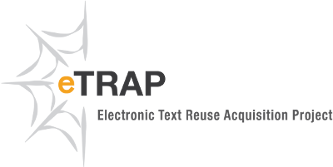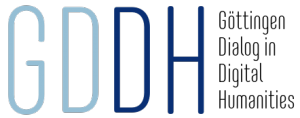The Göttingen Dialog in Digital Humanities has established a forum for the discussion of digital methods applied to all areas of the Humanities and Social Sciences, including Classics, Philosophy, History, Literature, Law, Languages, Archaeology and more. The initiative is organized by the Göttingen Centre for Digital Humanities (GCDH) with the involvement of DARIAH.EU.
The dialogs will take place every Monday from April 11th until early July 2016 in the form of 90-minute seminars. Presentations will be 45 minutes long and delivered in English, followed by 45 minutes of discussion and student participation. Seminar content should be of interest to humanists, digital humanists, librarians and computer scientists. Furthermore, we proudly announce that Prof. Dr. Stefan Gradmann (KU Leuven) will be giving the opening keynote on April 11th.
We invite submissions of abstracts describing research which employs digital methods, resources or technologies in an innovative way in order to enable a better or new understanding of the humanities, both in the past and present. We also encourage contributions describing ‘work-in-progress’. Themes may include – but are not limited to – text mining, machine learning, network analysis, time series, sentiment analysis, agent-based modelling, lexical and conceptual resources for DH, or efficient visualization of big and humanities-relevant data.

